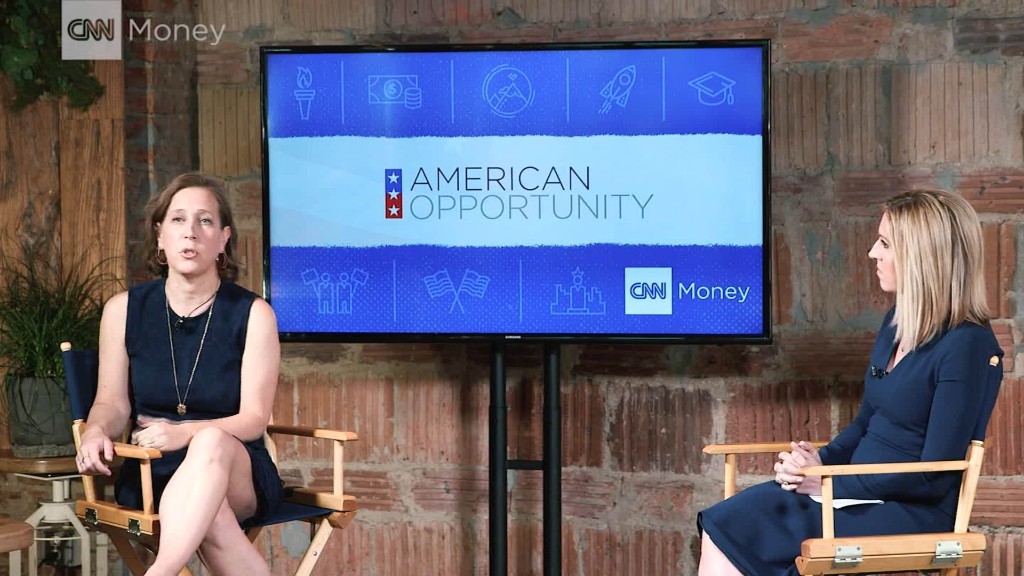
Google still has a major problem with extremist and hate videos.
Three advertisers -- Etihad Airways, Marriott, Deliveroo and the U.K.'s Labour Party -- have pulled their spots from YouTube after discovering they were shown alongside videos made by a hate preacher.
Google-owned YouTube has been under mounting pressure in recent months after more than a dozen organizations pulled their ads over similar complaints.
Etihad, the national carrier of the United Arab Emirates, said in a statement that it was "appalled" by the content of the videos.
"This content is abhorrent, deeply disturbing and the issue needs to be resolved by Google and all other media partners," it said in a statement.
Marriott (MAR) said it has stopped running ads on YouTube in Britain "for the time being" and is taking steps to make sure its ads do not appear with inappropriate content in the future.
Deliveroo said it was "extremely concerned." It said it has withdrawn its ads until YouTube takes action "to improve its content control and protect its viewers and advertisers."
The latest round of advertiser defections was first reported by The Times.
The newspaper said that Mastercard (MA), Johnson & Johnson (JNJ) and New Balance have also pulled their ads. Those companies did not respond to requests for comment from CNNMoney.
Weight Watchers (WTW), also mentioned in The Times report, said it would "not fund this type of activity" and added that it was "not currently" running ads on YouTube.
Related: These ads ran before ISIS videos
YouTube, meanwhile, said that it has made progress in addressing the issue.
"We've been conducting an extensive review of our advertising policies -- and in recent weeks have made significant changes that give brands more control over where their ads appear," a spokesperson said.
YouTube sells ad time to companies, and their spots are slotted to play before videos. Advertisers don't directly control where their ads are placed, although they can specify the demographics they'd like to target.
YouTube relies heavily on viewers to flag content. With 300 hours of content a minute uploaded, some fall through the cracks.
The company said that while "no system will be 100% perfect," it has taken steps to "further safeguard our advertisers' brands."
The latest round of advertising suspensions included three major political parties in the U.K. The country will hold a general election on Thursday.
The Times reported that the Conservative Party and the Liberal Democrats had asked for their ads to be removed from the site. The Labour Party confirmed it had taken similar action.
"We will be raising this issue with YouTube and have paused all adverts until we are satisfied Google have taken steps to make sure this does not happen again," the party said in a statement.
In March, Google (GOOGL) faced an advertiser exodus after spots from major brands and the U.K. government ran alongside content from extremist groups.
At the time, the British government summoned the tech firm to explain why taxpayer-funded ads were used on content including videos from former Ku Klux Klan leader David Duke.
Related: Google fights to win back advertisers
Google and Facebook (FB) own huge chunks of the digital advertising business, and major brands are spending an increasing share of their ad budgets on their platforms.
Companies are becoming cautious about where their advertisements appear, however. Vodafone (VOD) announced plans on Tuesday to prevent its ads from running on sites that carry hate speech and fake news.

